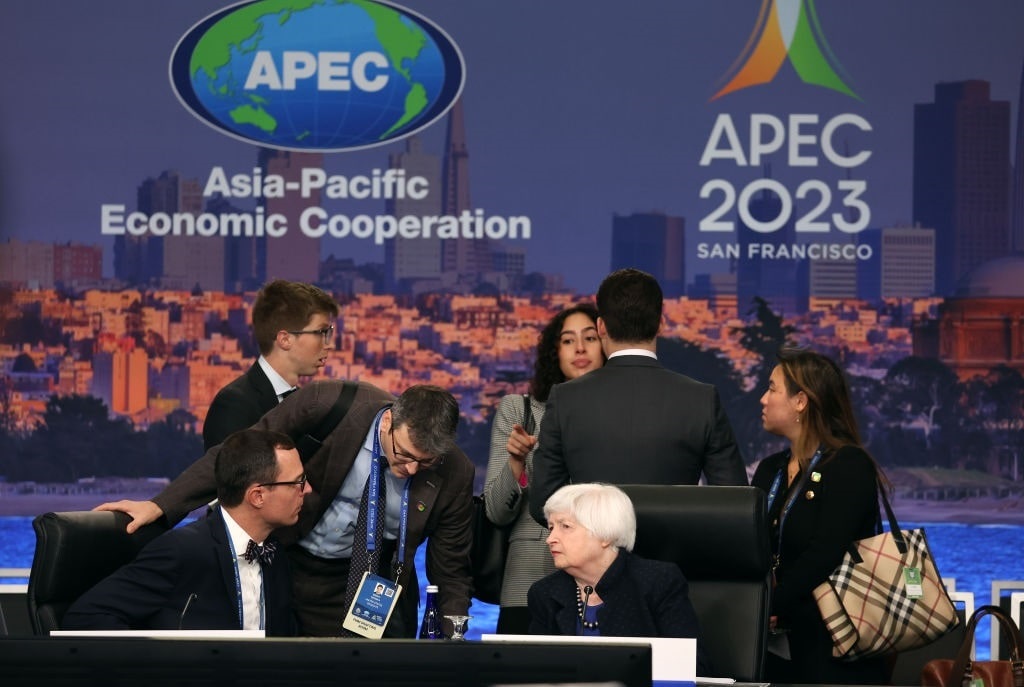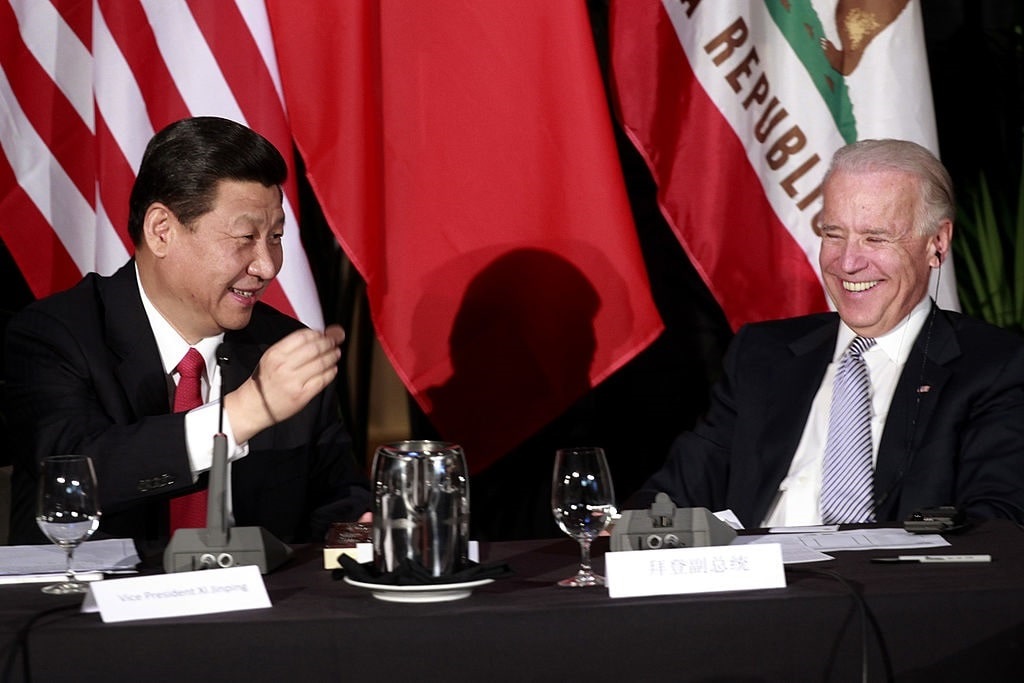Joe Biden will meet with Xi Jinping, president of China, on Wednesday, November 15, during the Asia-Pacific Economic Cooperation (APEC) Ministerial Meeting in San Francisco. There is plenty for the two presidents to discuss, but the question is, will the US agenda be advanced? It seems whenever the two national chief executives meet, Xi treats the encounter as theater where he takes the stage to push his global hegemonic narrative, and Biden is merely part of the audience.
Lofty Goals for APEC Summit
Americans have seen the results of the two leaders’ talks before. “Following the July 28 [2022] call between Biden and Xi, the Chinese media got out first with a plethora of threats regarding Taiwan, leaving the US national security team struggling to put a happy face on the conversation,” Liberty Nation reported. And again, in the first face-to-face meeting in November of last year, expectations were for substantive and encouraging steps toward warmer relations. Alas that was not to be. Beijing’s takeaway from the meeting was to reiterate its warning that the question of Taiwan was the “bedrock” of any China-US relations. If the US tries to separate China from Taiwan, the People’s Republic of China (PRC) will not allow that to happen.
As the saying goes, “That was then. This is now.” The APEC meeting is the occasion for the upcoming Biden-Xi conversation. In a special press briefing at the US Department of State, Ambassador Matt Murray, senior official for Asia-Pacific Economic Cooperation, described the goal of the conference. Against the façade of a San Francisco temporarily washed clean of the homeless, drug dealers, addicts, and generic street derelicts to welcome the international economic community, Murray told the press this year’s theme is “Creating a Resilient and Sustainable Future for All.” He described policy priorities as “interconnected, innovative, and inclusive.” The importance of the agenda items cannot be denied. America’s chief representative to APEC explained:
“APEC remains committed to economic cooperation in this dynamic region that represents 40% of the world’s population, nearly half of global trade, and over 60% of the global economy. APEC economies unequivocally play an important role in ensuring global prosperity. US exports to APEC economies in 2022 surpassed 1.3 trillion, with agricultural exports alone reaching $136 billion. Over one-half – 55% – of all of our total exports were destined for APEC economies, and these exports support almost 7 million US jobs.”

(Photo by Justin Sullivan/Getty Images)
Though the week of meetings in San Francisco will have lofty and economically consequential goals, the eyes of the rest of the world will be on the summit between the two largest global economic competitors’ leaders, Biden and Xi.
In an interesting exchange between a senior administration official and a member of the press during a White House background briefing on Biden’s trip to APEC, the precise spot of the presidents’ meeting was called into question. The official counseled the press to use “San Francisco Bay Area” since the precise location was being withheld for security reasons. A reporter asked if that phrase indicated the Biden-Xi meeting might be in another nearby city. If the press thought about it for a couple of minutes, they would realize the meeting is likely to be held somewhere the streets have been swept. That would narrow it down. To zero in more exactly, look to the area where, as described by Liberty Nation, “Black metal fenced barricades have been constructed outside the Moscone Center, where the conference will take place.”
Chinese vs. US Hopes for Meeting
The tenor of the conversation between Biden and Xi will be tense. The way the White House senior official described what to expect was: “As is always the case, the two leaders will discuss issues where we have differences, such as human rights, cross-trade issues, South China Sea, and a fair and level playing field for US companies and workers.” Aamer Madhani from the Associated Press raised a predictable question, asking whether the US president would like to see China “take on the crisis in the Middle East?” The senior White House official responded during the backgrounder:
“I believe that the President will underscore our desire for China to make clear in its burgeoning relationship in — with Iran that it is essential that Iran not seek to escalate or spread violence in the Middle East, and to warn quite clearly that if Iran undertakes provocative actions anywhere that the United States is prepared to respond and respond promptly.”
China’s meddling in the Middle East would not be helpful under any circumstances. If warning that the US will respond promptly to provocative actions by Iran is the best counsel Biden can give Xi, that train has left the station. The value of that request is lost to history, in light of Iran having for years escalated and “spread violence in the Middle East,” being the number one sponsor of terrorism and providing the money and weapons for Hezbollah and Hamas terrorists.
What does China want out of the meeting? In his analysis for The Washington Times, Bill Gertz suggests President Xi wants “concessions on ideology, trade, and exports,” referring to PRC state media announcements. “Bilateral relations with the US should be based on three principles, starting with ‘mutual respect.’ That reflects China’s demand that the US not try to subvert Beijing’s communist system,” Gertz wrote. The two other objectives include a “demand for peaceful coexistence” and what the Chinese Communist Party (CCP) state media calls “win-win” cooperation. All three are a “precondition” for any improvement in the US-China relationship.
The conversation should be interesting. Should Biden embrace Beijing’s increasingly warlike operations in the South China Sea and persistent provocative incursions into Taiwan’s air space? Perhaps Xi wants the US president to congratulate the CCP on its persecution of the Uyghurs or its subjugation of the Chinese people. Concerning the Chinese definition of “win-win,” China wins when it is confident the US loses. President Biden might want to remember that.
If Biden can get to the press stakeout first with his version of the meeting, that would be a win – the US chief executive could use one.
The views expressed are those of the author and not of any other affiliation.




